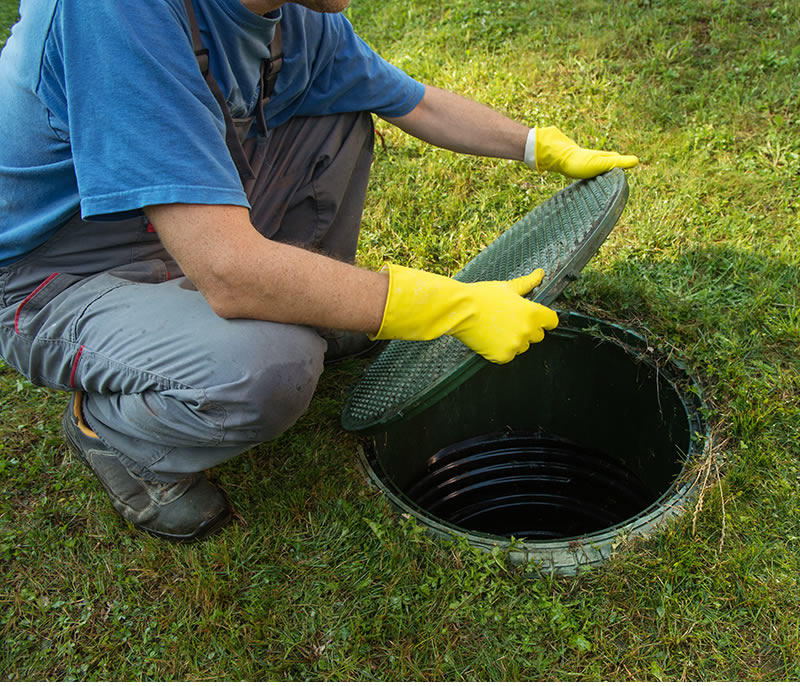
29
In the world of septic systems, the term "sludge level" plays a crucial role in understanding the health and functionality of the system. Septic tanks are designed to separate solid waste from wastewater, allowing for the breakdown of organic matter and the safe disposal of effluent. However, over time, solid waste accumulates at the bottom of the tank, forming a layer of sludge that requires regular maintenance to prevent issues and ensure the proper functioning of the system. Let's delve into what sludge level in septic tanks entails, its significance, and the importance of maintenance.
Sludge refers to the solid waste that settles at the bottom of the septic tank during the wastewater treatment process. This sludge consists of organic matter, such as human waste, food particles, and other solids, that have not fully decomposed or broken down. As wastewater enters the septic tank, heavier solids sink to the bottom, while lighter materials float to the surface, forming a layer of scum. Between these layers lies the clarified liquid effluent, which exits the tank and enters the drain field for further treatment and dispersal.
The sludge level in a septic tank refers to the depth or thickness of the layer of solid waste accumulated at the bottom of the tank. Over time, as more wastewater enters the tank and solid waste accumulates, the sludge level gradually increases. If left unchecked, excessive sludge buildup can lead to several issues that compromise the efficiency and effectiveness of the septic system.
One of the primary concerns associated with high sludge levels is the risk of clogging or blockage in the drainage pipes and the drain field. As sludge accumulates in the tank, it can obstruct the flow of effluent through the system, leading to backups, slow drainage, and sewage odors. Additionally, clogs in the drain field can cause wastewater to pool on the surface, resulting in soggy or flooded areas and potential environmental contamination.
Moreover, excessive sludge buildup can also interfere with the proper functioning of the septic tank itself, leading to issues such as reduced capacity, increased odors, and potential damage to the tank. If the sludge level rises too high, solid waste may escape into the drain field or clog the outlet pipe, necessitating septic tank repairs or thorough septic tank cleaning.
To prevent issues associated with high sludge levels, regular septic tank pumping and cleaning are essential. Septic tank pumping involves removing the accumulated sludge and scum from the tank using specialized equipment. By scheduling routine septic tank pumping with a reputable septic company, homeowners can ensure that their tanks remain in optimal condition and avoid potential problems associated with sludge buildup.
The frequency of septic tank pumping depends on several factors, including the size of the tank, the number of occupants in the household, and the volume of wastewater generated. As a general guideline, septic tank pumping is recommended every 3 to 5 years for most residential properties. However, homes with larger households, older tanks, or heavy water usage may require more frequent pumping to prevent sludge buildup and maintain system efficiency.
In addition to regular septic tank cleaning, homeowners can take steps to minimize sludge accumulation and promote the health of their septic system.
By understanding the significance of sludge level in septic tanks and implementing proper maintenance practices, homeowners can ensure the long-term functionality and efficiency of their septic systems. With regular septic tank pumping, cleaning, and proactive maintenance, homeowners can enjoy peace of mind knowing that their septic systems are operating smoothly and effectively. If you are considering a new septic tank installation or any other septic services, reach out to skilled professionals at Charlotte Septic Pros.

22
Can Bacteria Additives Eliminate the Need for Pumping? If you own a home with a septic system, you’ve probably seen…
Read more
12
A single slow drain in your home can feel like a minor inconvenience. Maybe the sink takes a little longer…
Read more
05
Are Slow Drains a Septic Issue or Just a Clog? Slow drains are one of those household problems that start…
Read more
02
What Septic Service Techs See That Homeowners Miss Most homeowners only think about their septic system when something goes wrong.…
Read more
21
Simple Habits That Protect Your Septic System A well-functioning septic system does its job quietly, but the moment something goes…
Read more
14
Pump Now or Pay Later: The Real Cost of Skipping Maintenance A properly functioning septic system is easy to forget…
Read more
11
Why Your Septic System Always Acts Up at the Worst Time Homeowners often feel that septic problems strike at the…
Read more
04
Early Warning Signs Your Septic Tank Needs Pumping For homeowners who rely on a septic system, routine maintenance is not…
Read more
29
Why Does My Septic System Smell Fine One Day and Terrible the Next? If you own a home with a…
Read more
19
Is Your Septic System Overdue? Simple Home Checks You Can Do Today For many homeowners, the septic system is a…
Read more